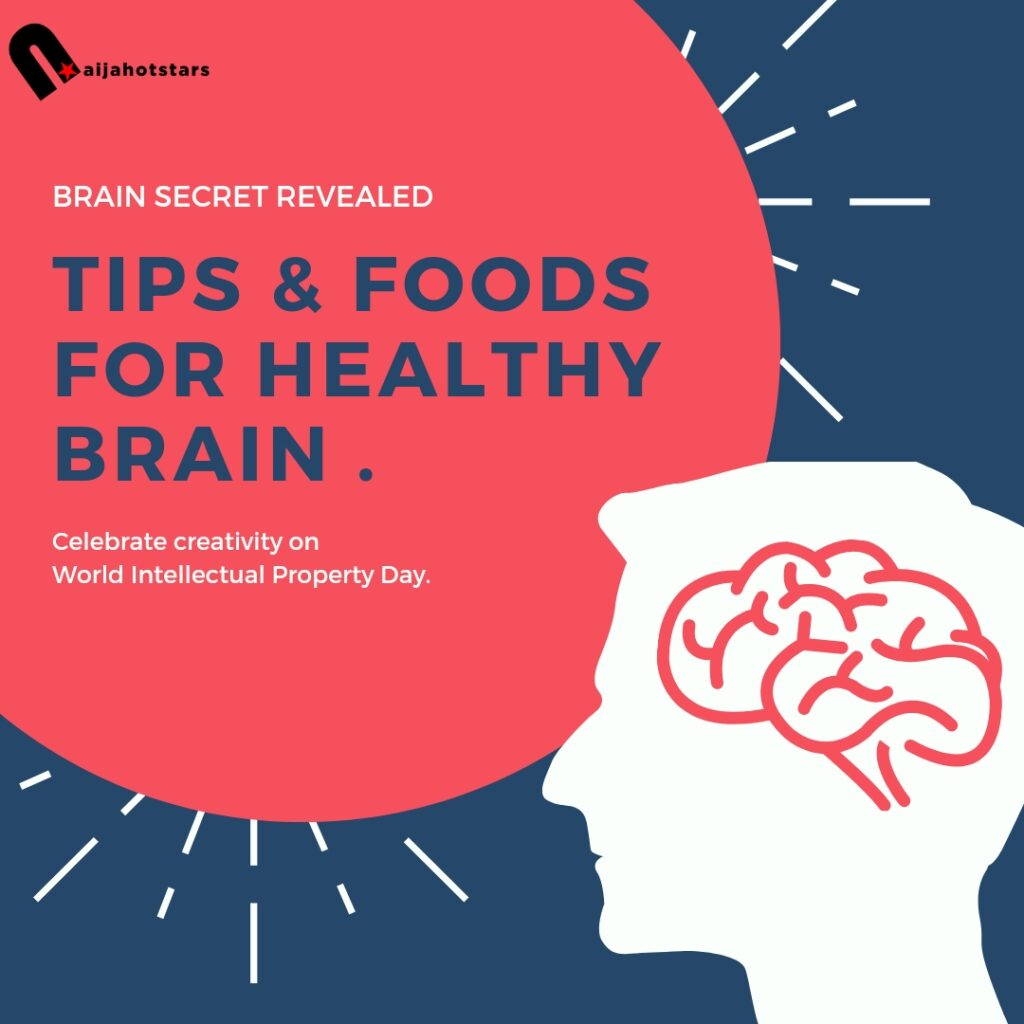Hi there, good to have you here. In today’s session, we are going to talk about Power Foods and Tips to Boost Brain Health. The brain is the most complex and vital organ in the human body, responsible for controlling every function, from movement and sensation to thought and emotion.
Introduction
Hey there, brainiacs! Did you know that your brain is like a high-maintenance BFF? It needs constant fueling, or it’ll turn into a grumpy, forgetful mess! But fear not, dear readers, for we’ve got the scoop on the ultimate brain food – “power foods” that’ll make your brain go from “meh” to “wow!”
As we age, our brain health can decline, leading to cognitive impairment, memory loss, and increased risk of neurodegenerative diseases like Alzheimer’s and Parkinson’s.
However, research has shown that certain foods can support brain health and even improve cognitive function. These “power foods” are rich in essential nutrients, antioxidants, and other beneficial compounds that promote brain well-being.
The Science Behind Power Foods
Your brain is like a superhero, saving the world one thought at a time. But even superheroes need snacks!
The brain is a highly active organ, accounting for only 2% of our body weight but consuming 20% of our daily caloric intake. It requires a constant supply of energy and nutrients to function optimally. Power foods provide the necessary fuel for our brains, supporting cognitive function, memory mood regulation and other cool compounds that keep your brain in top shape.
We’re about to explore Power Foods and Tips to Boost Brain Health, but before then let’s learn about some of the advantages.
Advantages of Power Foods for Brain Health
Incorporating power foods into your diet can have numerous benefits for brain health, including:
- Improving memory and concentration (no more forgetting where you put your keys… or your car)
- Boosting cognitive function and processing speed (you’ll be like a human calculator!)
- Reducing the risk of neurodegenerative diseases (bye-bye, brain fog!)
- Regulating mood and stress (no more grumpiness!)
- Improving sleep quality (sweet dreams, indeed!)
- Increasing focus and productivity (you’ll be like a productivity ninja!)
Functions of Power Foods
Power foods support brain health by:
– Providing essential nutrients like omega-3 fatty acids, B vitamins, and antioxidants
– Reducing inflammation and oxidative stress
– enhancing the brain’s oxygenation and blood flow
– Supporting neuroplasticity and neural connections
– Regulating neurotransmitters and hormones
Key Nutrients for Brain Health
1. Omega-3 Fatty Acids: Essential for brain structure and function, omega-3s support cognitive processing, memory, and mood regulation.
2. B Vitamins: Play a crucial role in energy metabolism, nerve function, and neurotransmitter synthesis.
3. Antioxidants: Protect the brain from oxidative stress and inflammation, reducing the risk of neurodegenerative diseases.
4. Magnesium: Involved in neuronal function, synaptic plasticity, and neuroprotection.
5. Choline: Converted to acetylcholine in the brain, supporting memory, attention, and cognitive processing.
List of Power Foods for Brain Health
1. Fatty Fish (Salmon, Sardines, Anchovies): Rich in omega-3s, supporting cognitive function and memory.
2. Nuts and Seeds (Walnuts, Chia Seeds, Pumpkin Seeds): High in antioxidants, magnesium, and healthy fats.
3. Leafy Greens (Spinach, Kale, Collard Greens): Packed with antioxidants, vitamins, and minerals.
4. Berries (Blueberries, Strawberries, Raspberries): Rich in antioxidants and flavonoids, supporting cognitive function.
5. Dark Chocolate (70% cocoa or higher): Contains flavonoids, improving blood flow and cognitive function.
6. Turmeric: Curcumin, a polyphenol, has potent anti-inflammatory and antioxidant effects.
7. Green Tea: Rich in catechins, supporting cognitive function and neuroprotection.
8. Fermented Foods (Kimchi, Sauerkraut, Yogurt): Contain probiotics, supporting gut-brain axis health.
9. Egg Yolks: Rich in choline, supporting memory and cognitive processing.
10. Ginger
11. Olive Oil
12. Whole Grains (Quinoa, Brown Rice, Whole Wheat)
13. Legumes (Lentils, Chickpeas, Black Beans)
14. Ferulic Acid-Rich Foods (Ferulic acid is an antioxidant found in foods like tomatoes, sweet potatoes, and fermented foods)
Frequently Asked Questions
1. How much of these foods should I consume?
Aim for a variety of power foods in your diet, and consume them in moderation (2-3 servings per day).
2. Can I get these benefits from supplements?
While supplements can be helpful, whole foods provide a complex mix of nutrients and compounds that work together for optimal brain health.
3. Are there any specific cooking methods that enhance brain health benefits?
Cooking methods like grilling, roasting, and sautéing can enhance the bioavailability of brain-healthy compounds in power foods.
4. Can power foods improve mental health conditions like depression and anxiety?
While power foods can support brain health, they should not replace medical treatment for mental health conditions. Seek guidance from a medical expert for specific recommendations.
Additional Tips
1. Hydration: Drink plenty of water to maintain cognitive function.
2. Exercise: Regular physical activity promotes blood flow and oxygenation to the brain.
3. Sleep: Aim for 7-9 hours of sleep per night to support brain health.
4. Stress Management*: Engage in stress-reducing activities like meditation, yoga, or deep breathing exercises.
5. Social Engagement: Maintain social connections to support cognitive function and mood regulation.
Conclusion
Incorporating power foods into your diet can have a significant impact on brain health and cognitive function. By understanding the science behind power foods and incorporating these nutrient-dense foods into your diet, you can support your brain well-being and reduce the risk of neurodegenerative diseases. Remember to stay hydrated, exercise regularly, get enough sleep, manage stress, and engage in social activities to promote optimal brain health
Discover the powerful connection between what you eat and how you feel via “The Relationship between Diet and Mental health.” It is a fascinating article that explores the intricate link between nutrition and mental wellbeing. Learn how certain foods can boost your mood, energy, and focus, while others can exacerbate anxiety, depression, and stress. Find out how a balanced diet rich in whole foods, fruits, vegetables, and healthy fats can support a healthy mind and body. Read on to uncover the secrets to a happier, healthier you!”
